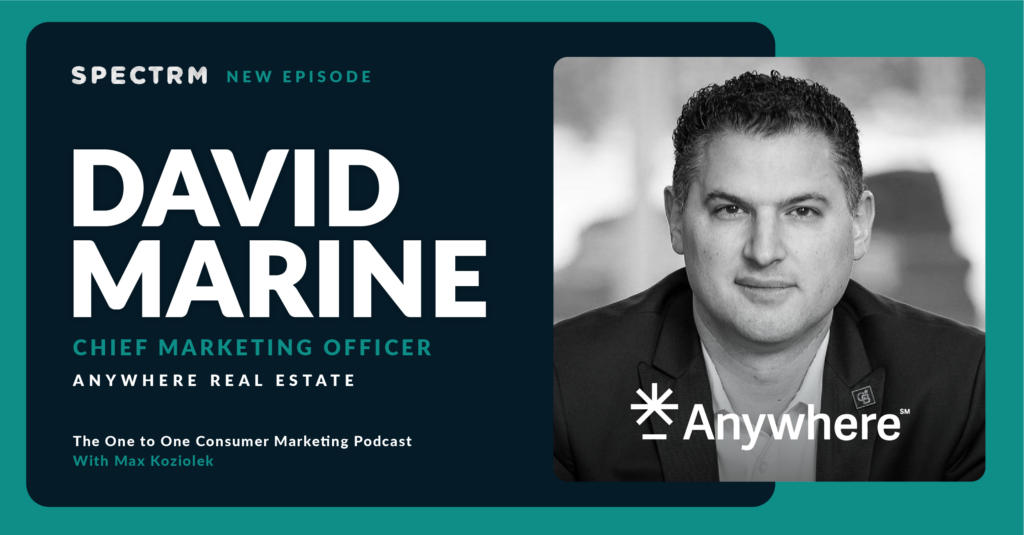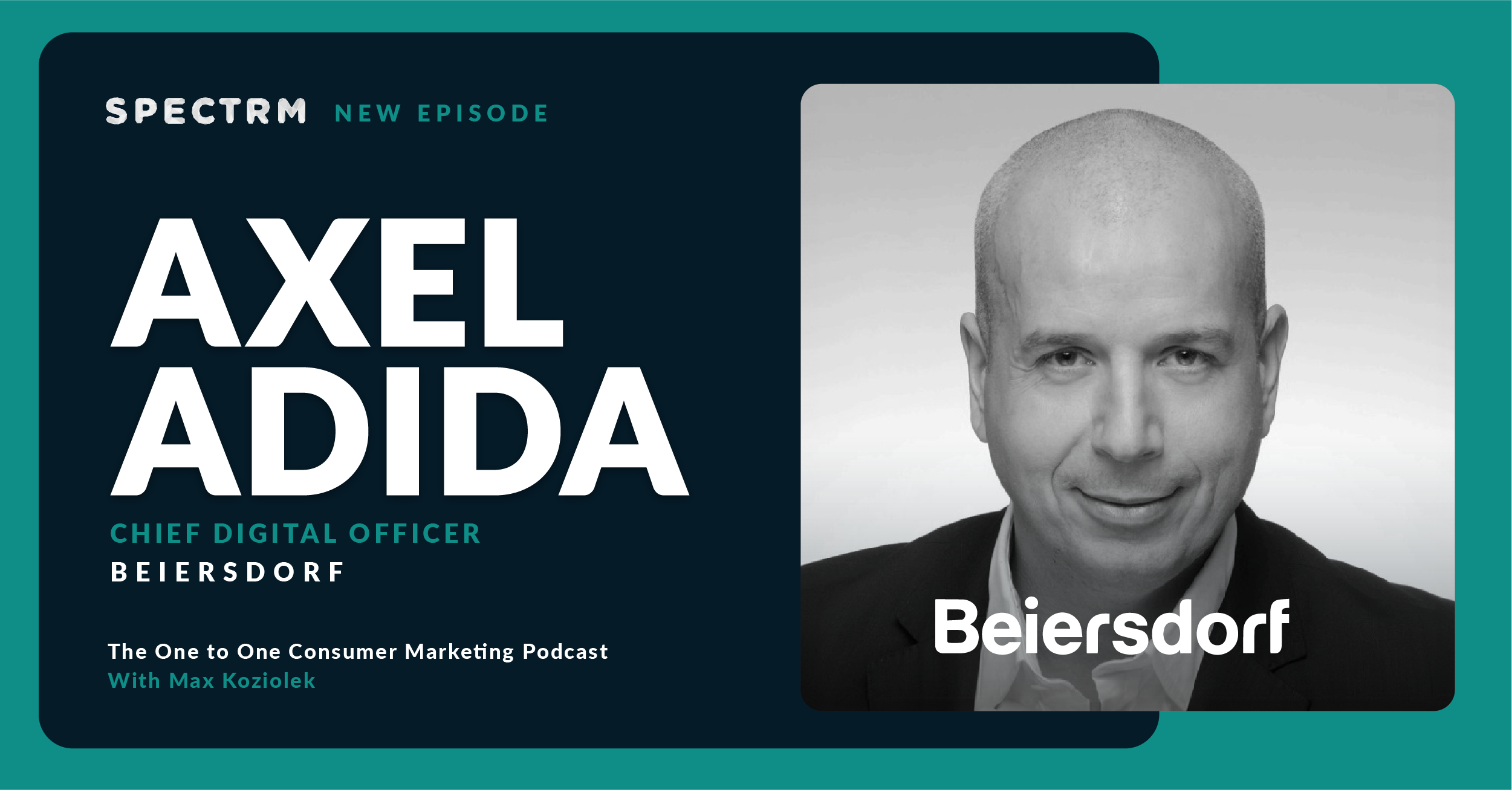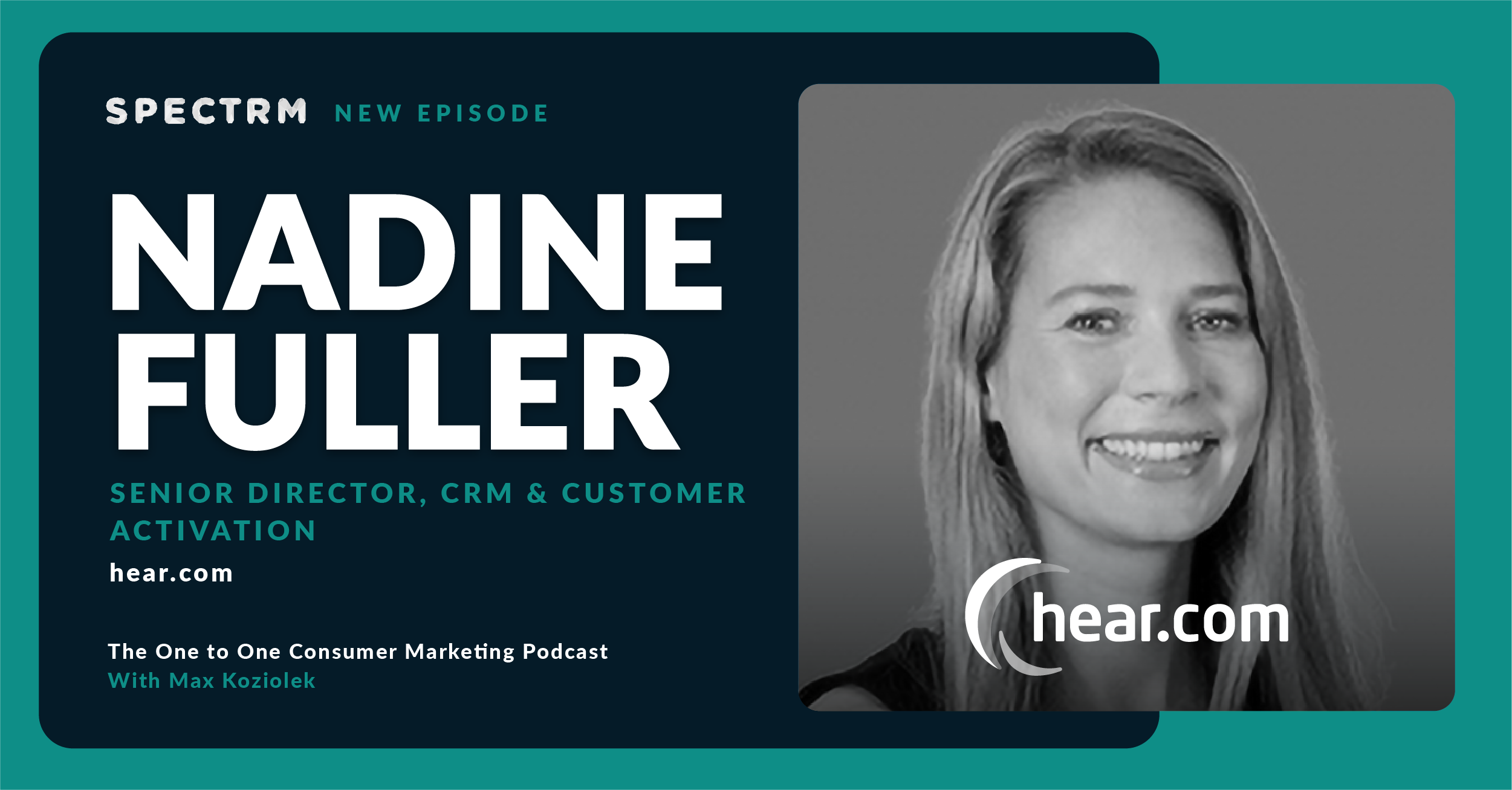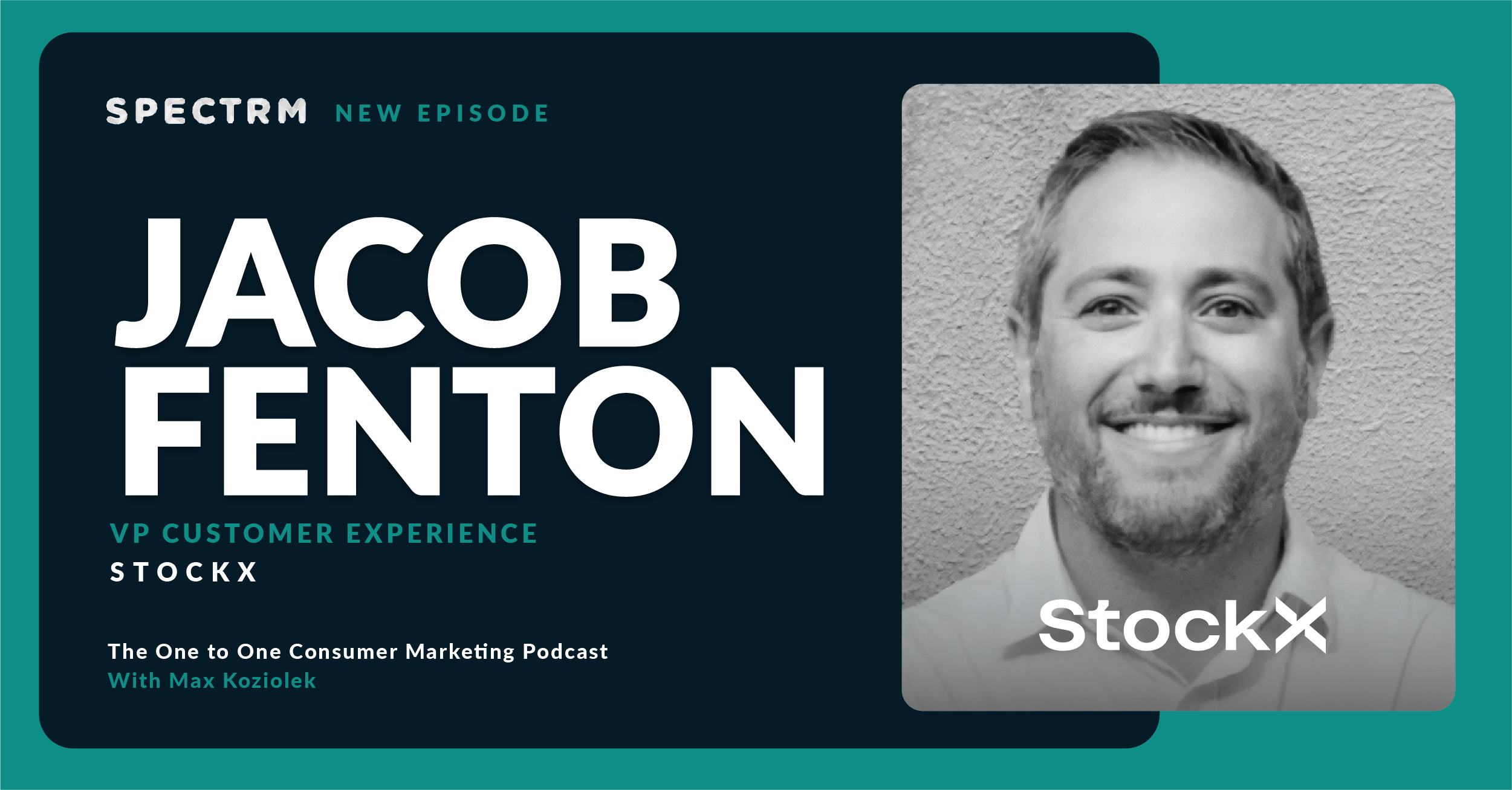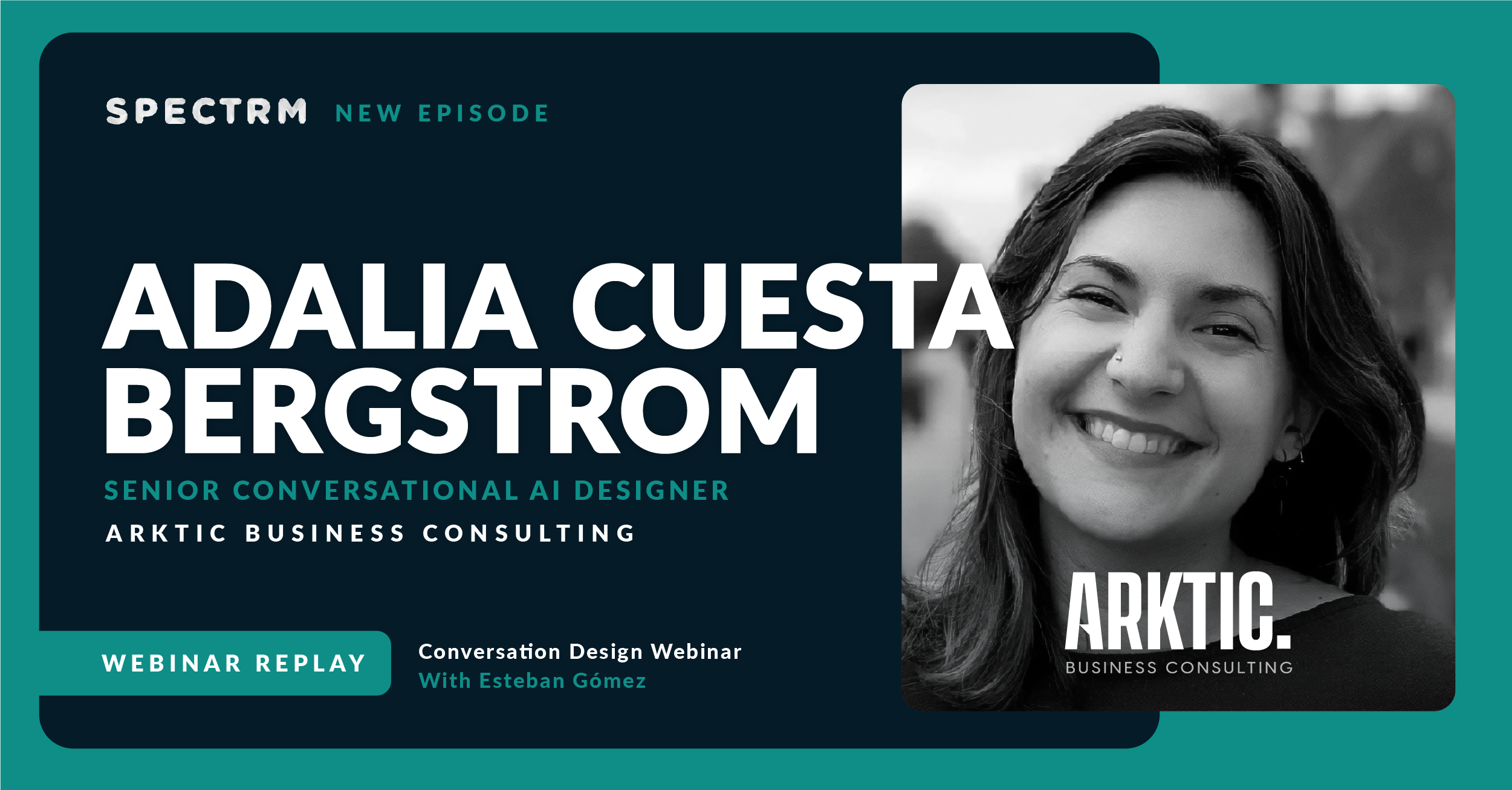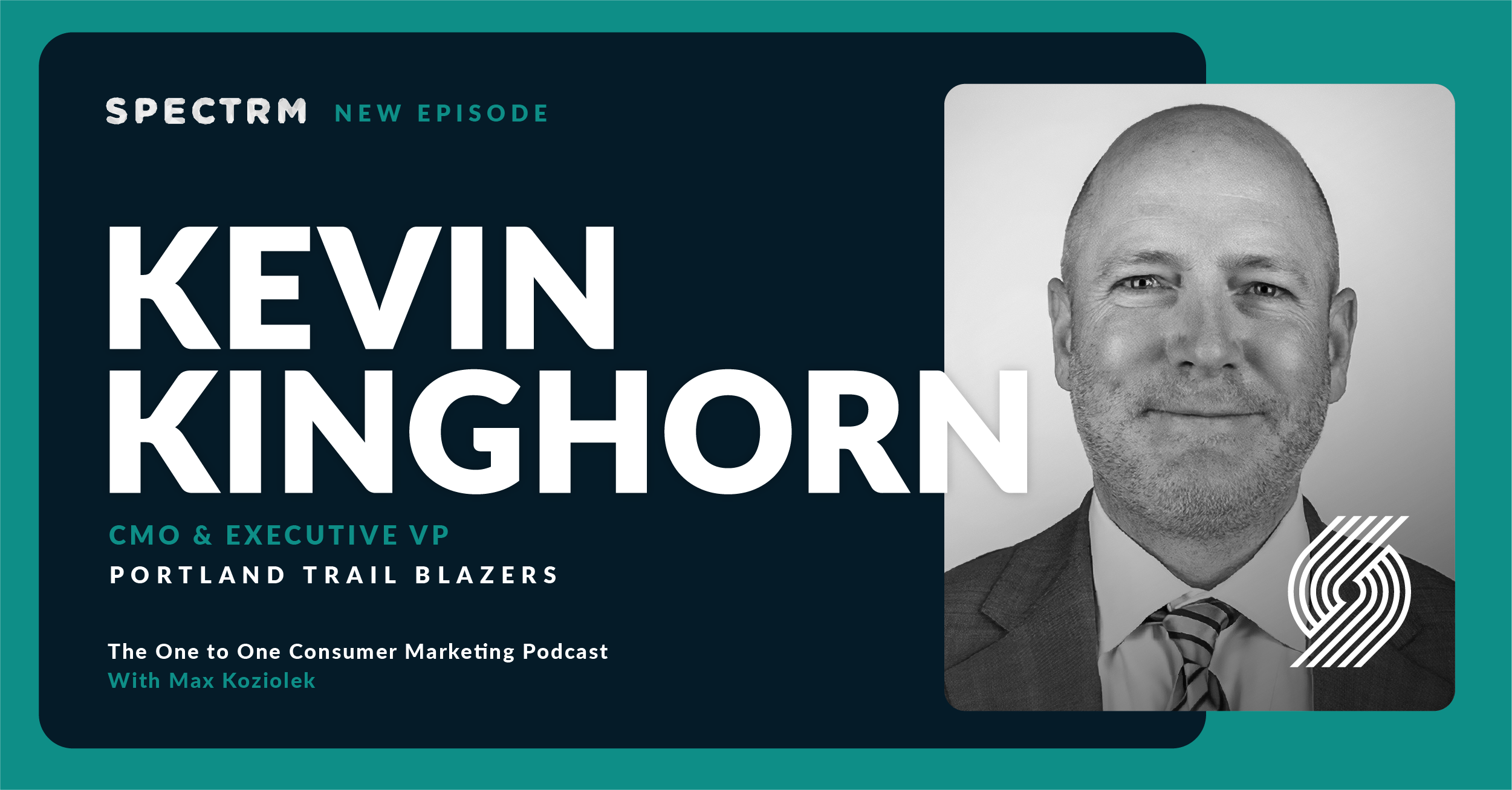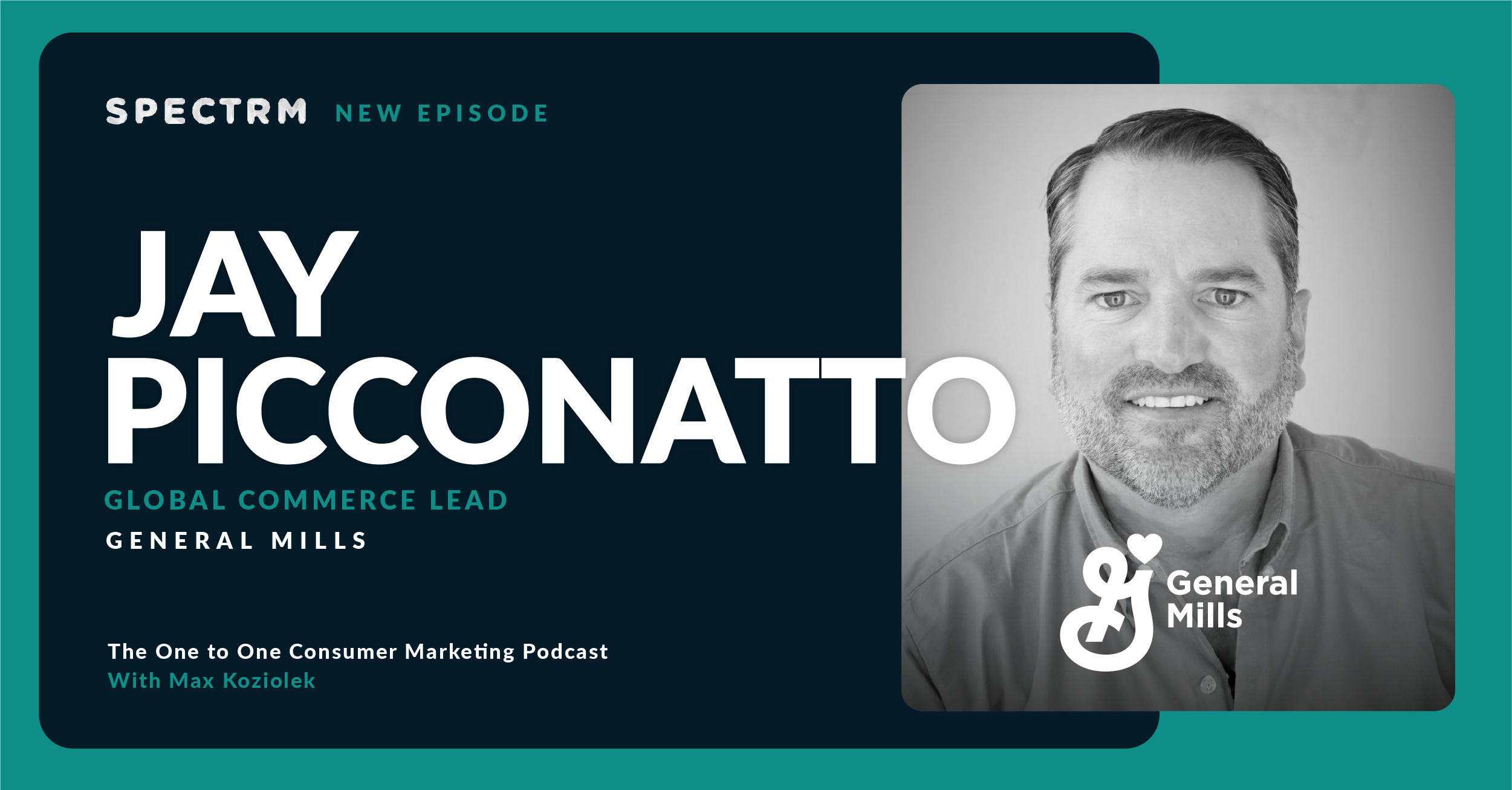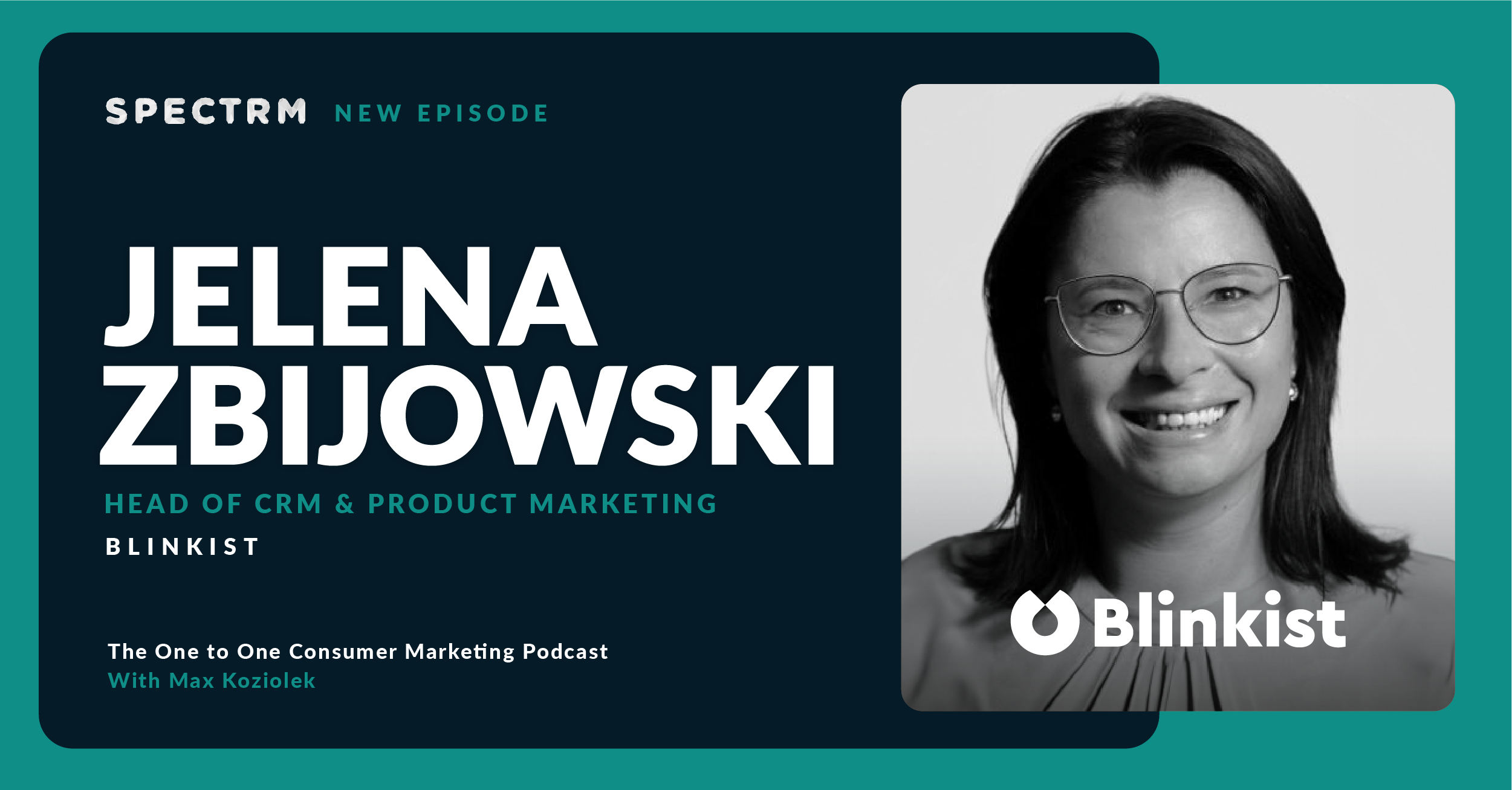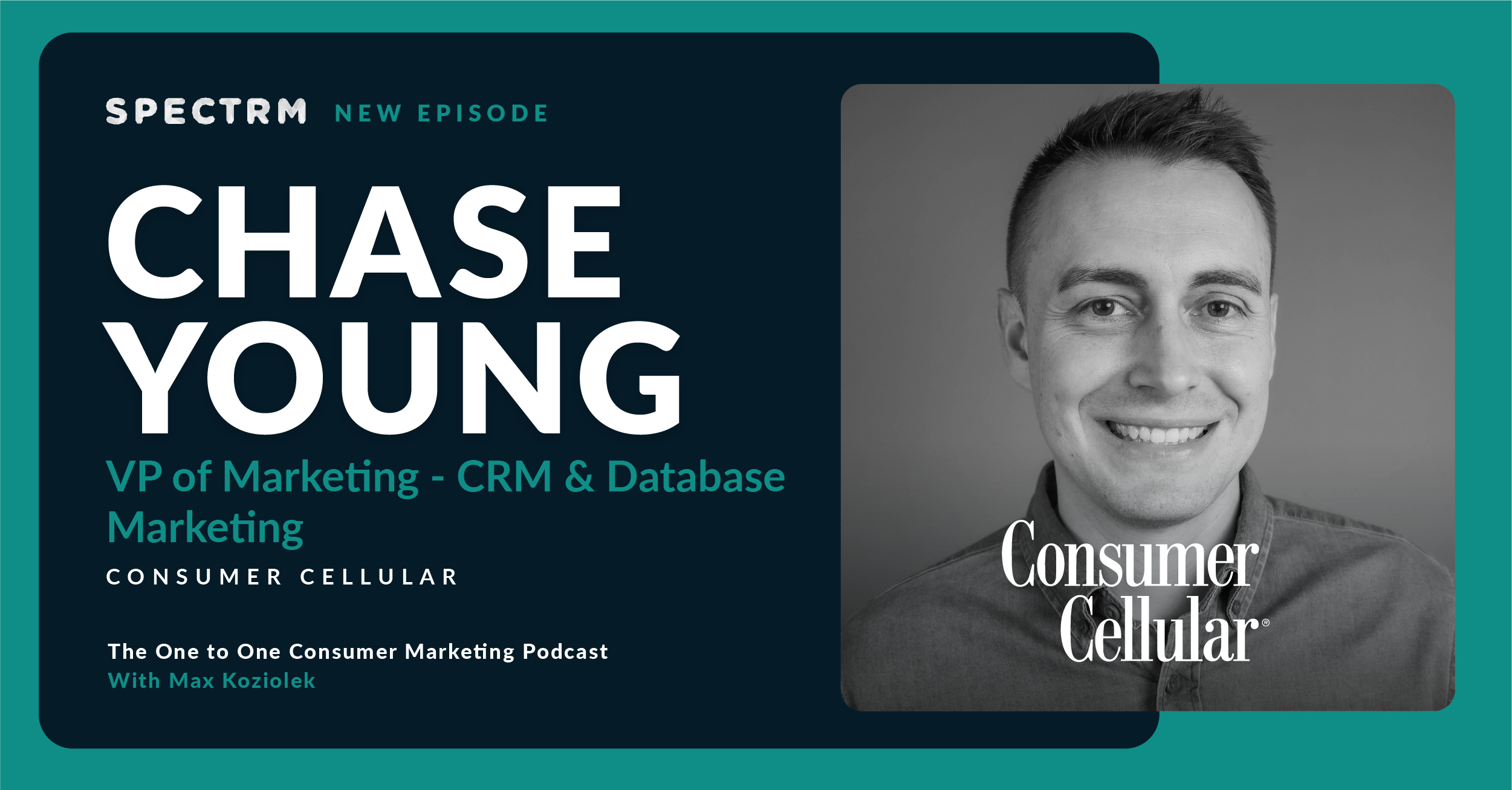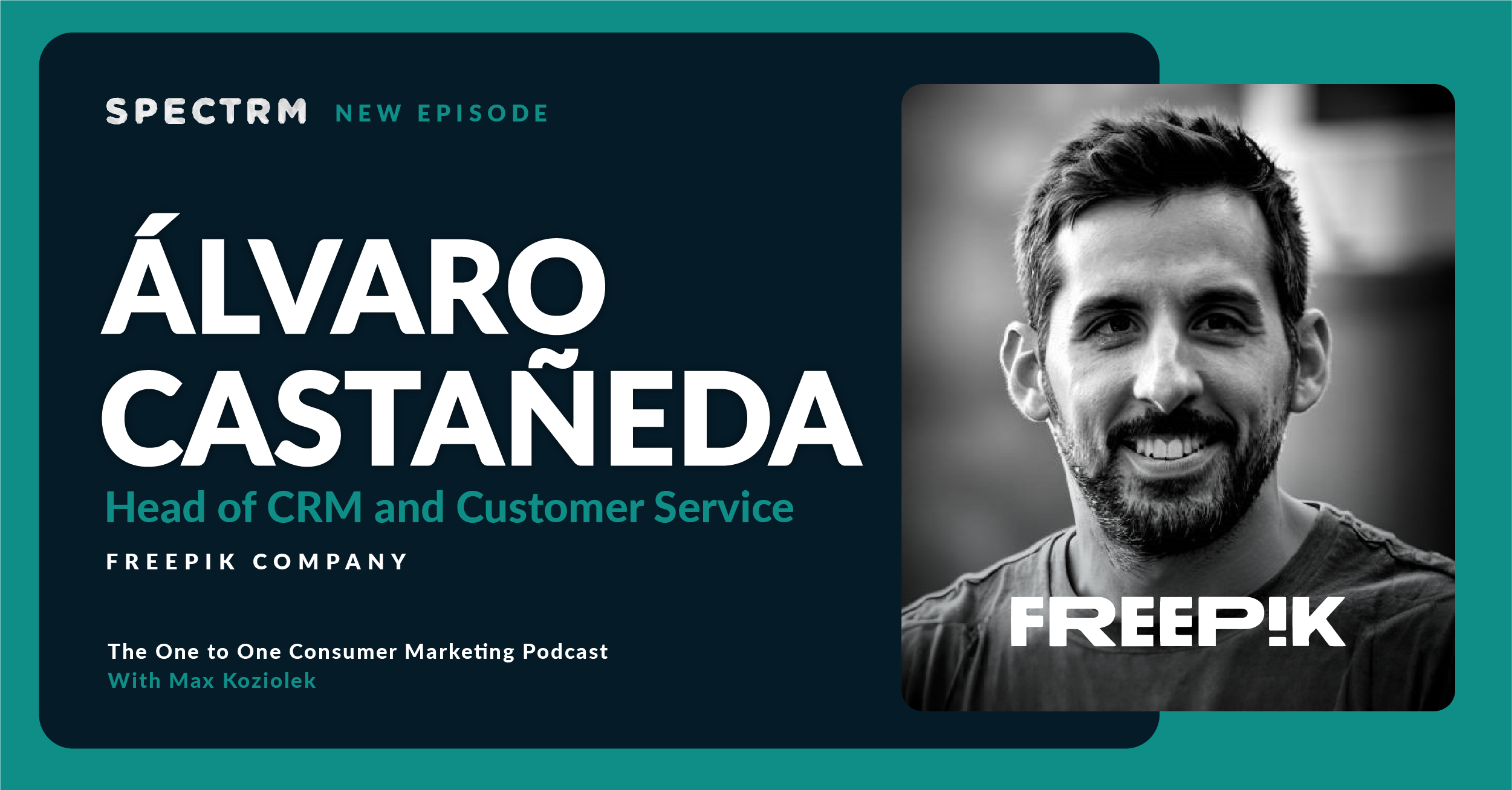Summary
Max speaks with David Marine, Chief Marketing Officer at Anywhere Real Estate, the parent company of Coldwell Banker. They discuss how Coldwell Banker is building on 117 years of ingenuity in their marketing efforts, as well as how and why they executed their recent rebrand. They also talk about how to target two primary audiences, their focus on creating national campaigns that can be customized at the local level, and how they embrace new social media and technological opportunities.
Topics discussed
- The history of 117-year-old Coldwell Banker and how they were founded on principles of ingenuity and being customer-focused.
- Staying relevant by having a “Go” mindset and willingness to try new things.
- The decision to lean heavily into video to showcase homes in the early days of YouTube.
- How Coldwell Banker balances marketing to two distinct audiences: their agents and their home-buyers.
- Why Coldwell Banker embarked on a major rebrand in 2018, and how they used storytelling to get their agents and customers bought in.
- How they’re creating national campaigns that can be customized at the local level to better cater to different markets.
- Why every brand should be experimenting in AI today to see how it can impact their business tomorrow.
What is the primary audience? Real estate is the exception. We always have two. It's the consumer when we're doing consumer messaging. But it's also our agents as well, because our 100,000 agents across the globe, they're the ones who are going to have those touch points with those consumers between those seven or eight years of buying and then looking to sell. And the more agents that we can attract to our brand, the more likely it is that we're going to be able to increase our market share and listing inventory and selling homes.
Guest biography
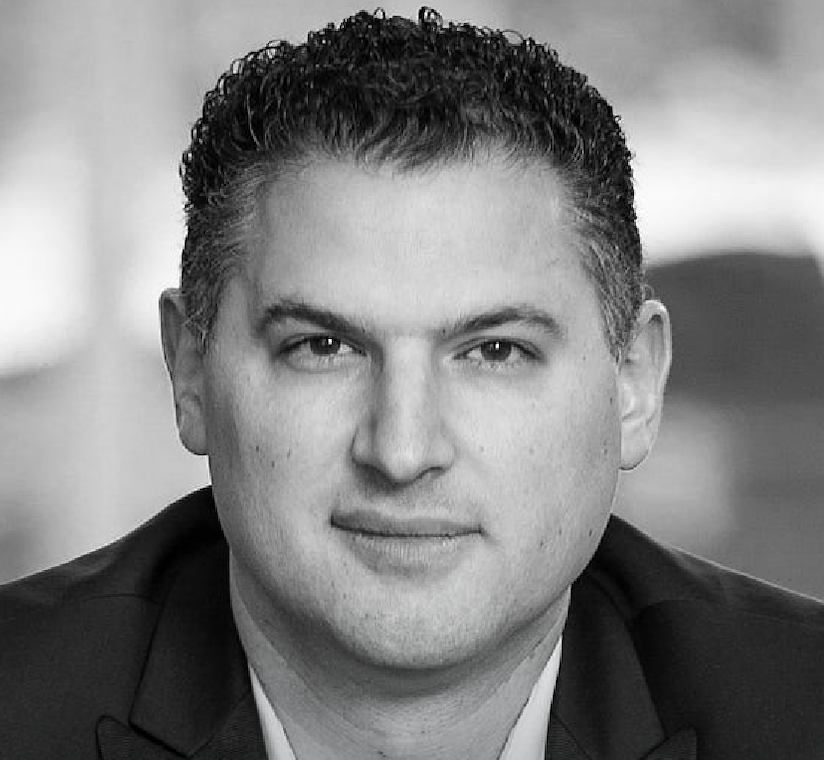
David started his career with Coldwell Banker in 2002 and has since held almost every role imaginable within the marketing group. In addition to developing the highest rated ad ever in the real estate category and leading the first rebrand for Coldwell Banker in nearly half a century, David is most known for his affinity of storytelling and leading a team of diverse, thought-provoking marketers to reshape a brand that has existed for 114 years. Marine has been the force behind the first real estate video centric YouTube channel, the adoption of data-driven and AI-backed proprietary app called CBx and transforming the brand’s marketing into a content and social machine.
He is currently Chief Marketing Officer, overseeing the branding and marketing for the Anywhere Real Estate stable of brands including Better Homes and Gardens Real Estate, Century 21, Coldwell Banker, Coldwell Banker Commercial, and ERA Real Estate.
Company overview
Anywhere Real Estate Inc. (NYSE: HOUS) is moving the real estate industry to what’s next. A leader of integrated residential real estate services, Anywhere includes franchise, brokerage, relocation, and title and settlement businesses, as well as mortgage and title insurance underwriter joint ventures, supporting approximately 1.2 million home transactions in 2022.
Industry: real estate | www.anywhere.re
Subscribe to the podcast newsletter
Transcript
David Marine
What is the primary audience? Real estate is the exception. We always have two. It’s the consumer when we’re doing consumer messaging. But it’s also our agents as well, because our 100,000 agents across the globe, they’re the ones who are going to have those touch points with those consumers between those seven or eight years of buying and then looking to sell. And the more agents that we can attract to our brand, the more likely it is that we’re going to be able to increase our market share and listing inventory and selling homes.
00:33
Max Koziolek
Hey, everyone, and thanks for listening to the one to one consumer marketing podcast. Today. I’m speaking with David Marine. Thanks for chatting with me today.
00:42
David Marine
Happy to be here, Max. Thanks for having me.
00:44
Max Koziolek
Before we get started, why don’t you tell us a bit more about your background and journey with Coldwell Banker over the last two decades?
00:52
David Marine
Yes, so I’ve been with Coldwell Banker for about 21 years. It’ll be 22 in March. And the crazy thing is, I actually came to Coldwell Banker through what I thought at the time was one of the biggest tragedies in my life. The story goes, in September of 2001, I bought a home. In December of 2001, I got married. On Valentine’s day of 2002, I walked into the office and found out I was getting laid off from the small marketing agency that I was working for. So I had a new home, a new wife, a new mortgage, and no job. And I went two months without finding a position. I went on over 30 different interviews. There was a point in time where do we have to sell the home and move in with my parents or something in order to make ends meet.
01:36
David Marine
My wife had just finished her master’s degree. She didn’t have a job. She was trying to set her career. And she ended up taking a job just answering phones at a local business just so we had some additional income. And then, lo and behold, one day I came across a job on hotjobs.com, if you’re old enough to remember what that site is, to be the electronic product manager for cultural banker. And I went in not really knowing a whole lot about the brand and the company, and it turned out that was one of the best moves in my life.
02:04
David Marine
And the fact that I did get laid off turned out to be one of the greatest benefits that have happened because I likely would have stayed with that agency for a couple of more years or whatever, and who knows where things would have gone from there. So I give a lot of credit to and remind, when I get to talk to students and young people in their career, say, you’re going to have stuff that’s going to come up that you think is going to be the worst thing in the world, but there’s always an opportunity on the other side of it. And so I’m living proof of that. And so I’ve been with Coldwell ever since, for last 21 years.
02:34
Max Koziolek
That’s an amazing story. I think a very good insight from the very first answer. That’s fantastic. I mean, Coldwell Banker is probably the leading real estate company and has a track record like no one else is, staying constantly ahead of the competition. How do they do that? How do you achieve that as an executive, as a company? And maybe you can tell us also a little bit more about the first major rebranding in 50 years you completed.
03:05
David Marine
Yeah. As a marketer, a lot of people are questioned, hey, a legacy brand, there’s a lot of things that come with it. But for me, being at the helm of the legacy brand is a huge advantage. Coldwell Banker has been around for 117 years, and a lot of who the brand is and what it represents stems from its beginnings back in 1906, and it’s continued through it. So I’m not trying to set up something that’s brand new and change the identity of who Coldwell Banker is at its core, but been able to ride this more than a century wave of success into making the brand who it is today. And we talk about our values, being home, awesomeness, ingenuity and excellence. And that ingenuity part is really at the crux of who the company has been since its inception.
03:51
David Marine
So back in 1906, there was a 20 something University of Berkeley dropout who came back to San Francisco. San Francisco earthquake decimated the city, saw a lot of shady real estate deals going on at the time, and decided, you know what, I’m going to start my own company and do what’s right for the consumer, and I’m going to approach things differently and I’m going to put the consumer first. And that’s been sort of the trust and the foundation of the brand since its beginning. And from there, the ingenuity has happened not just on, hey, there’s these new technologies and changes and things, but even how he approached the business. The guy’s name is Colbert Coldwell of Coldwell Banker. He eventually partnered with a guy named Benjamin Arthur Banker. So that’s where the name came from.
04:31
David Marine
But he had the ingenious idea of, you know what, I’m going to guarantee my services in writing, which no one was doing at the time. And here’s what you’re going to get from me, and I guarantee it. And if I don’t, then we can walk away. We were the first to have sellers disclosure before the National association of Realtors. We’re the first with a national website back in the late 90s. We’re the first with mobile applications on iPhone android, first on video, and the list goes on and on. And so when you have that type of ingenuity at the core of your brand, then it’s just part of the normal cycle to continue to find new ways to do things. And where can you get inspiration in.
05:04
Max Koziolek
Order to do dropout? So a dropout seems to be a pattern in building phenomenal companies, at least.
05:11
David Marine
In California it is.
05:15
Max Koziolek
Today it is. Yeah. But if you were by the core of the company, need to be ahead of the industry, need to be ahead of the pack. How do you do that on a day to day basis? How do you manage that? Do you have a lot of innovation budget? Do you have specific teams that are always trying out something new? Or how do you do that personally?
05:37
David Marine
Yeah, there’s not a dedicated team focused on this. But I give a lot of credit to the leadership that has been at the helm of coal banker for my entire career. And what I’ve tried to do now that I’m in charge of marketing as CMO, and that at every step of the way along my career, when new things would come up, there was never a, hey, that’s not helping this. We’re focused on this. There was always an opportunity to try something new. So I distinctly remember one day I was watching an Apple telecast online and they came out with this thing called an App Store on the iPhone. And I waltzed into the SBP marketing’s office and I said, hey, I just watched this thing about this application store and they’re going to add these things to our phones.
06:19
David Marine
Maybe we should look at building something out. And the response was, go do it. Look into it. I walked in another time and said, hey, I’m on this thing called Facebook with a lot of my friends. There might be something here. Maybe we should set up a page, see how it can work for our business, connect with our agents and allow them to socialize with their consumers. Maybe we should explore it. And the response was go. So every step along the way, there’s always been this opportunity to try something new and a willingness to see if it will work. Now, the key is that it has to work at the end of things or else you’re going to lose that confidence over time. But I really give credit to the leadership at Coldwell Banker along the way.
06:54
David Marine
And I also get inspiration from outside of our industry. So I joke with people all the time that every good idea I’ve had can stem from one of three things. It either came from late night television, from sports or comic books. And so looking at outside our industry, what are things that are going on, whether it’s in the entertainment industry or tech or whatever, and say, hey, is there an application here that can work for us? And testing those things out has always been something that I’ve tried to stay true to, and I encourage my team to do it as well.
07:22
Max Koziolek
That makes a ton of sense. I was just, my head is already spitting and thinking, what is going on in Tameman? Which is interesting, which could be interesting. Banker, what is going on in comic books? I don’t know, unfortunately. But now you are the person that know someone is walking into your office and is saying, can I look into that? And now you’re the one telling them to just go. Apparently you did also with YouTube, a real estate focused YouTube channel, which is really successful. What’s the story behind that?
07:52
David Marine
Yeah, that actually stemmed from another quasi crisis when it was a down market in the 2009 2010 time frame, and we thought our budgets were getting slashed. So the head of marketing at the time said, put together big ideas. If we have a limited fund, what is something big we can do that’ll make an impact? And so started looking at YouTube was just coming into prominence, and I was seeing a lot of the content that was coming out there and started following different sports teams that were showing highlights on there and having conversations about the debate shows and all that kind of stuff. And so we started to think, well, what if we could create a mechanism for people to discover videos of homes for sale, video profiles of our agents, videos of the local communities that they serve?
08:35
David Marine
And what if you could just create a destination where you could search just for video content? And so we partnered with YouTube and Google to create, and they used to allow on your YouTube pages at the time, these widgets where you could interact with a brand on their actual YouTube page. And so we created the searchable widget to find videos of properties for sale. And what that was is while the launch of that specific YouTube channel was a success and got a lot of pr reviews, it also cemented a foundational element for our marketing that is still in existence today. And that was video was at the core of everything we did, whether it was an event that we’re going to be hosting. Whether it was a campaign that were rolling out, there was always a video component.
09:15
David Marine
We started just pushing for that, and we even set up in house video production. And we used to shoot some videos in the storage closet at the headquarters, just like running gun style. And then also working with video partners. And even today, every single thing that we put out there, whether it’s internal communications, it’s a global luxury thing that we’re rolling out, it always has video at its core. And I really give that credit back to when we started our YouTube channel.
09:39
Max Koziolek
Over 15 years ago, which is incredibly valuable today, I would assume, because video platforms like YouTube, but also like TikTok become also search platforms. So I think YouTube is the second biggest search platform in the world. So everybody thought about this real estate here, let’s search, right? So there’s a clear search intent, but now also video, right.
10:02
David Marine
I think I read is Synthesia came out with a report that said that 82% of all Internet traffic was to video content. And so when I’m talking about this to our franchisees and our agents across the globe, saying, if you’re not creating video content on a regular basis, you’re taking 82% of the Internet and saying, I don’t want to talk to you, and that just seems ridiculous, why wouldn’t you do that? There’s also different retention measurements that shows that people retain 90% of a video message compared to only 15% of a written message. So when you put that all together, it really has to be part of what you’re doing as a marketer today, which seems like it’s common sense.
10:37
David Marine
But even with the advent of vertical video through TikTok and Instagram stories and what have you, the way that you can communicate through video is now it’s accessible to anyone and everyone. So really trying to make that part of your brand’s dna and instilling it in your, at least with the marketing team in my instance, really has helped build the brand over time and allow us to continue to showcase what we want through video as a mechanism that.
11:04
Max Koziolek
Makes total sense before we go into different channels and technologies. One question that I’m really interested in is how real estate is. You have boom and bust phases. In some spaces, people buy or switch a lot more than they do in other phases. So currently mortgage rates are quite high. So that is probably preventing a few people. How is that to work in an industry where success is maybe dependent on so many macro factors like yours?
11:34
David Marine
Yes, it really is a one of a kind industry. And I’ve worked with people who’ve come from all types of different industries, whether it’s financial services, auto, consumer, packaged goods, what have you. When you get to real estate, there’s always this. Like what? It works like this. How do you guys do this? Because when you’re looking at someone’s purchasing a home, on average, once every seven or eight years, and now with interest rates being higher and home prices being higher, that is expected to extend maybe even further. So you’ve got to figure out a way to connect with a customer over the course of seven years when they’re really probably not thinking about buying or selling a home. That’s why when we look at audience profiling as a marketer, you’re always taught to figure out who is your target audience. Have one.
12:23
David Marine
What is the primary audience? Real estate is the exception. We always have two. It’s the consumer when we’re doing consumer messaging. But it’s also our agents as well, because our 100,000 agents across the globe, they’re the ones who are going to have those touch points with those consumers between those seven or eight years of buying and then looking to sell. And the more agents that we can attract to our brand, the more likely it is that we’re going to be able to increase our market share and listing inventory and selling homes. So that is a unique approach from a marketer’s perspective of you’ve got a dual audience all the time, and sometimes the best way to reach an agent is by talking to the consumer directly and then vice versa. Is true.
13:02
David Marine
Persuading consumers to list their home with coal banker is often done by making sure that the agent is equipped in showcasing what really makes a home different when it’s sold with the coal banker.
13:11
Max Koziolek
Agent makes a ton of sense. Is that comparable to, I don’t know, an Uber, for example, which has to attract both drivers and riders, and you always have to balance the marketplace. Is that how you also have to divide your attention?
13:24
David Marine
It is. However, imagine your Uber ride was half a million dollars, then all of a sudden becomes a lot like, oh, now I want to think a little bit more about this versus, all right, we’ll take a flyer on a $15 ride somewhere. So that’s really the significant factor, is that buying a home is largely the biggest financial investment you’ll make in your life. And so what we try to emphasize is you don’t want to fly by night. I don’t want to buy something on the cheap when it’s a half a million dollars to $2 million investment, I want to make sure it’s being done the right way. I actually had a personal experience as a for sale by owner and buying from a for sale by owner. And I went through that experience thinking, oh, I’m going to save some money.
14:05
David Marine
This was before I joined Coldwell Banker. I was very young, and it was one of the worst experiences in my life. And I said to my wife, I will never again go through this process without an agent. Because again, if you’re not buying a home, except for once every decade, if you will, I don’t remember everything that went into buying it the first time. And I’m sure there’s different things that have changed. So having a trusted advisor who can help guide you through that process, especially with the way that home prices are today, you want to be able to rely on someone who’s going to be able to walk you through that and be that counselor as well as personal guide to walk you through all the different processes that is purchasing a home.
14:44
David Marine
And I think that’s really what has allowed Cobanker to set itself apart of being that guide, guiding people home for 117 years. And that’s why we have the North Star in our logo as well as part of our rebrand.
14:57
Max Koziolek
That’s very cool. Maybe let’s move there to the rebrand. How did you approach a rebrand of such a legacy brand and also approaching a rebrand when you were the leader in the industry? Because where you could easily brush it off and say, we’re at the top, why should we change? So how did you approach that and how is it going?
15:17
David Marine
Yeah, the rebrand, which the process actually started probably in 2018, 2019, and it really didn’t start with, hey, let’s rebrand. We were doing some research on perception and what consumers, how they perceived us. And what we found was what were have this great YouTube channel, we’ve got applications on devices, we’ve got new websites, everything at our core. And what were doing, consumers were saying, wow, this is forward thinking. It’s great. You’re a trusted, recognizable brand, but you’ll look old. And so the analogy that I like to use and give credit to old counterpart of mine, Mike Fisher, he said it’s almost as if we needed a new suit. So you go in for a job interview, you’ve got the resume, you got the references, you got the experience, but you go and you look like Jim Halpert from the Office all of a sudden.
16:04
David Marine
What’s on the paper is now matching what’s in front of you. And it brings up questions where all of a sudden, if you got a new suit, new haircut, all of a sudden now these things are all connecting. And that is really what made sense to us. It was everything were doing at our core was attracting the right audience. But how we looked and how were being presented was holding us back. So that was really the impetus for the rebrand. And we decided, hey, let’s not throw away everything completely. Let’s take some elements of our existing brand and just freshen it and make it feel like it’s for the right audience, for the future. So there used to be this little c and a b bug in the bottom right hand corner of our logo. Been there for 45 years or more.
16:44
David Marine
And we pulled that out. We modernized the font, we updated, and we made it feel a little bit more fresh and modern. While having your initials and an updated font is fine, we wanted to add another element to it. And so we added the five pointed star, which symbolizes two things. One five pointed star has been the universal symbol for excellence since Pythagoras first used it in ancient Greece. Symbolize something that could not be improved upon. It’s the reason why we have stars for movie reviews, stars for generals, and so on. But then the star also represents the North Star, which has been guiding people home since time began, is a fixture in the sky, much like coal banker. For 116 years, we’ve been guiding people home, and people have been turning and looking to us to help them through that process.
17:24
David Marine
So you put that all together, and that’s how we ended up with the mark that we had. But we also wanted to gain inspiration, not from other real estate brands and their designs, but from fashion brands, because we understood that more people will come across our brand on a person with 100,000 agents across the globe than they will directly from us. So we wanted it to be fashionable. We wanted to be able to pull an icon off, put it on swag, on hats, on pins, on whatever, and make it feel like a fashionable item. And that has been probably the biggest win as part of this rebrand as well. I think we’ve sold over a million dollars worth of merchandise that has our logo on it in the first year of our rebrand showcasing that our agents want to wear it.
18:06
David Marine
And to me, that is one of the biggest wins as a brand. So people choose to wear your identity on their bodies and say, this is now a part of being who we are. So overall, we launched the rebrand in 2020. I would not recommend rebranding during a global pandemic, but it ended up working out fantastically. And now one of the best things in the world is when someone sees the old logo somewhere and somebody hasn’t updated yet and they go, man, that looks old and it’s only two or three years removed from when. That was the most prominent mark that we had. So really a success and really love the way that both consumers have adopted it and the perception increases. We’re seeing there as well as our own agent network.
18:47
Max Koziolek
Very cool. I did not know the story about the fashion. That’s good knowledge to have. That sounds like a very good story. Is there something you would do differently? Is there something where you would say, hey, if you as a CMO at a major organization are doing or plan to do a rebrand? That’s my number one lesson.
19:05
David Marine
Oh, yes, I got tons of options for you. But the biggest lesson I learned was the importance of telling the story the right way around. Why the rebrand? And so we had been working on the rebrand for a couple of months leading up to our annual event that we call the gem blue experience. We were going to reveal the rebrand at the event and we did. And of the 5000 people that were at the event, it was fantastic. They heard the presentation, they heard the story, they were coming up afterwards getting lots of great feedback, lots of photos. And then all of a sudden I looked online and the people that weren’t there all of a sudden were jumping in about, this is stupid, this is awful, why are they changing it? This is a brand that’s been around for 45 years.
19:51
David Marine
Why are you changing it? And then all of a sudden that started to snowball and there were articles written about how I needed to be fired and the entire marketing team needed to get rid of, and that they’re going to roll this back. There’s no way they’re going to move forward with this rebrand. So I remember coming home after the event and just reading every comment online on Facebook, et cetera, and just wallowing in misery. And then I realized, listen, this is my own doing. I need to get to work. And I figured out that those who heard the story there at the event, they loved it. But it’s those who hadn’t heard the story that didn’t fully understand it and were immediately rejecting it, if you will, because change is hard and change, not a lot of people like change.
20:35
David Marine
So I set out to do basically a multi city tour and I was going to go to wherever I could to tell the story of the rebrand. And I said, I want to start with the most vocal office that we have. Who’s been complaining the most? They sent me to Newport Beach, California, and I had to stand up in front of a room of 300 people who are all calling for my head and explain to them why were doing this. And after this 25 minutes presentation, all of a sudden I could see people’s change, that they could be persuaded. I’m a big believer in the power of a story, and when you have the right crafted story, all of a sudden it changes people’s perception. And then they can connect with it. They can relate to something. That’s an element of it.
21:15
David Marine
So the more went around and I started sharing this story, all of a sudden perceptions changed, comments changed, and then they got to see it in person. And we had a leadership event where we showed people how the yard tens would look. Here’s how it looks on different swag and different stuff. And all of a sudden, it became this momentous shift to now people were fully behind it. And to anyone looking to do a rebrand, get your story straight and make sure it’s a compelling one, a persuasive one that can allow people to engage an emotional connection with it, because I could have done a much better job of that up front in preparing people for the change that was to come.
21:52
David Marine
But looking back now, I think going through those woeful times of wallowing and self pity helped me understand the power of a story and how we need to implement that for anything that we’re doing. That is a change in what people have been expecting from us in years past.
22:10
Max Koziolek
That’s an amazing story and also a lot of legwork. Right. So I imagine that was not the first location where you had to give the presentation. Probably a few more in order to change each location, each room with 300, probably at the beginning, but probably also smaller events and going places to just make sure people see the value in that. That’s incredible.
22:34
David Marine
Yeah. One of the greatest compliments that someone gave was they came up to me even last year, and they said, you know what, I will always remember you taking the charge of the rebrand because I thought there was no way you could ever go through with this after the response that you got and the fact that you stuck to it and then also explained it and changed people’s minds is one of the biggest credits that I can give you. And to me, that is what you want. Marketing is all about persuasion. You want to persuade people to buy what you’re offering to be part of what you’re doing. And the more that you can showcase that power of persuasion through a story, I think that is a winning method for any marketer, regardless of industry.
23:20
Max Koziolek
That’s very well said. Yeah, I agree. And what a proof point for the rebrand. Right. So aside from all other effects you can measure with consumers and perception, and I know you just highlighted quite recently how well that is resonating with the consumers, also internally, that resonated and persuaded people. Yeah, very cool. If we talk a little bit about consumers and personalization. Real estate is a very unique thing. The house is unique, the needs are unique. So how do you advertise? How do you persuade people and consumers in an industry like that?
23:57
David Marine
Yeah, the persuasion side of things. I’ll start there. I’m a big believer in the emotional connection that people have with home and using that to power your advertising. So about 1213 years ago, everyone in the industry was talking about it’s a great time to buy and about the financial aspects of homeownership. And we really shifted the conversation to talk about what is the emotional value of a home. Yes, you want to make money on your home, you want to make sure you have a good deal, but the reason why you’re moving has little to do with finances and more to do with, I want something better for my family. I want to move closer to this thing. I’ve always dreamed of living here someday. And that’s really the cause of why people are choosing to move.
24:42
David Marine
So we wanted to showcase that we understand that better than anyone else, and because we understand that we are better prepared to take you through this process than anyone in the industry. And that’s been at the core of our advertising and our campaigns for over a decade. And during that same time period, with that shift in messaging, we’ve also had the number one highest rated ad in advertising every single year according to Ace metrics, which is a great tool to measure the effectiveness of your advertising. And there’s a lot of questions about, hey, how can you measure messaging and advertising? And Ace metrics really helps us to do that.
25:16
David Marine
And I place a lot of value in making sure that we know that the messaging that we’re putting out there is effective, because then that’s going to help empower all the media behind it and everything else that we’re doing if we know that is, the messaging works. So right now, our dream campaign that’s running out there, one of my favorite stats is that those that see our ads are nearly four times more likely to work with a cold beggar agent than those that don’t. So just by showing someone our ads, you are now four x, increasing their likelihood to work with you than if they hadn’t seen it.
25:46
David Marine
So when you talk about personalization and customization, when you have that powerful, persuasive messaging up front, now, how do we allow our network of agents and companies across the globe to customize that and take that winning messaging but use it in their local market? So one of my favorite complaints that I get when we used to come out with campaigns was, hey, that’s a really beautiful ad, Dave, but that palm tree is not a Florida palm tree. That’s a California palm tree. So therefore will not work in our market. So what we’ve done this year is really taken a focus on custom marketing for our network. And we have a custom video tool and different assets that says, hey, the construct of the message. We know this works, but you want to swap out this shot for something else, go right ahead.
26:32
David Marine
You want to update the end card with your own custom information and drive people to embeddable versions of our move meter. That’s on coldbanker.com. But guess what? We’re going to allow you to embed it on your local sites as well. Go right ahead. And all of a sudden, that is starting to see massive adoption from our network of our national campaigns, which is exactly what we want. We don’t need them to say, hey, I got to figure out how to come up with a campaign on my own for Rockford, Illinois. Instead, they can take what they know is winning messaging and just apply simple elements that can customize it for their audience and to meet their needs.
27:05
Max Koziolek
That makes a ton of sense. Also, four x athletics they’ve seen. That’s quite a number if you also look at intents and also how long they’re in the market. Right. So if you’re a homeowner and you want to do a change, that you’re in market for such a long time, but having this, in fact, with a national advertising, that makes a huge difference. Wow, that’s very impressive. When you look at the future a little bit, we know with AI, a lot of things is changing, but I can imagine that given that this is at the company’s core, you have a specific view on this, but how do you see the future evolving in the consumer but also in your industry?
27:43
David Marine
Yeah, well, it wouldn’t be a podcast if we didn’t mention AI. I think that’s absolutely. So obviously, everyone is very in tune with how AI is working and chat. GPT is the soup de jour, if you will, of AI. I’m very curious on how it works on the creative side of things as well. And one of the best pieces of advice that I read was look at AI today as how social media was ten years ago. People were just starting to figure it out. Some people were jumping in with both feet. But if you looked at social media ten years ago to how it is today, it’s completely different. TikTok didn’t exist. Snapchat wasn’t as popular as it was. The idea of vertical video was in as prominent and AI, it could change next week that drastically. It’s that much in its infancy.
28:31
David Marine
So the advice that I give is everyone should dabble in AI a little bit every day or every week. Could be personally, could be using it to work, but start to get an understanding of how you think this is going to apply and how is it going to impact your business. So from a business standpoint, we’ve looked at AI to help us with search engine marketing, copy and improving that visual imagery. Personally, I’ve also dabbled with something like mid journey, which can create creative based on AI prompts. Very curious to see how that can work and continue to improve, even extending into video. And have you. So that’s an unknown field. But one of the interesting things within real estate is typically as an industry, they’ve lagged behind other industries as far as technological development.
29:15
David Marine
So since I joined the company in 2002, there’s been this talk about moving the transaction online. And everybody was like, well, we got to do this, that, and we can finally get everybody to move the transaction online. And all it took was a global pandemic. And in three months, the entire industry moved online and never to look back again. So now that everybody is basically on this same foundation, I think you’re going to see some more improvements in the consumer experience through the real estate process. I know our parent company anywhere is doing a lot as a whole around this idea of packaging things together, whether it be title and insurance, as well as mortgage, as well as real estate services that you have that one stop shopping.
29:53
David Marine
And another reason why you use a real estate agent is no one understands what title is. And so therefore, how do you even know that you need it? And what is title insurance? So allowing someone to have that one stop shopping and experience and find it as a seamless process, I think is what you’re going to see continue to improve within real estate, especially domestically here in the US.
30:14
Max Koziolek
I can imagine. Yeah. I just thought about for a mid journey or Runway or something like that. And you had the examples of the different palm trees. Right. Florida. To swap that out or to create a completely adapted version to your local community would be possible in the future fairly easily with a Runway or a bit journey, because it can just generate pods. But maybe that also removes you feel less authentic. Maybe you don’t know. You have to learn it. You’re probably right. You have to start an experiment with that. But it’s not the answer to all questions.
30:52
David Marine
It’s not. And that’s the idea of Terminator two. Skynet’s coming and they’re going to replace us type of thing. To me, it’s the people that can understand and utilize AI best are the ones that are going to win in the future, whether you’re a marketer or any other professional. So that’s why I really think that it’s so much in its infancy. Don’t get too entrenched in how something works today, because I know that it’s going to change for the future, but you should be very comfortable with it and engaging with it even now.
31:20
Max Koziolek
Dave, that’s all we’re going to have time for today. But before we wrap up, if people want to follow your journey, where should they go?
31:28
David Marine
Absolutely. They can find me on LinkedIn, David Marine, and then encourage people to follow Caldwell Banker on social, Instagram, Facebook, TikTok, what have you at Caldwell. C-O-L-D-W-E-L-L. Banker.
31:41
Max Koziolek
B-A-N-K-E-R. We will put that into the show notes. And thank you again. We’re very much looking forward to see you executing and staying ahead in this very interesting industry of real estate. Thank you so much, Dave.
31:54
David Marine
Appreciate it. Max.
